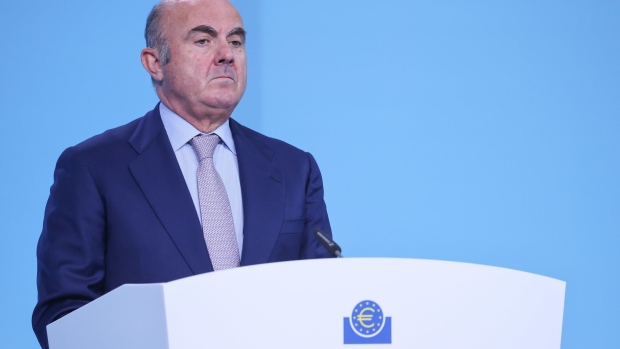Mar 21, 2022
ECB’s Guindos Doesn’t See Signs of Price Pressure on Wages
, Bloomberg News

(Bloomberg) -- Sign up for the New Economy Daily newsletter, follow us @economics and subscribe to our podcast.
European Central Bank Vice President Luis de Guindos has yet to see any indication that soaring inflation rates are leading to higher wage demands, according to an interview with Handelsblatt.
“What matters for us now is the extent to which wages respond,” Guindos told the paper in an interview conducted March 14 and published Sunday. “Because if wage increases are too high, they can push prices up even more and contribute to persistently higher inflation. We have not seen any signs of that yet, but we need to monitor developments closely.”
The ECB is attempting to shelter the economy from the fallout of Russia’s invasion of Ukraine while also acting to contain inflation at almost three times the 2% official target. Earlier this month, it surprised markets by announcing a faster removal of stimulus, but at the same time gave itself more flexibility on when to raise interest rates from record lows. Any moves in this regard will be data driven, according to Guindos.
“We are monitoring developments in inflation very closely,” he said. “We will be attentive to any developments that could indicate a wage-price spiral, where both factors become mutually reinforcing. Fiscal policy should also play a role here.”
European governments are increasingly looking to take the sting out of rising prices of energy and other goods. Just this weekend, Austria announced energy subsidies worth 2 billion euros ($2.2 billion), including tax cuts and employee compensation, while Germany may be considering subsidies for personal mobility and energy.
“Fiscal policy should provide temporary, targeted support to help reduce the burden,” Guindos said. “This would also reduce the danger of a wage-price spiral.”
©2022 Bloomberg L.P.






